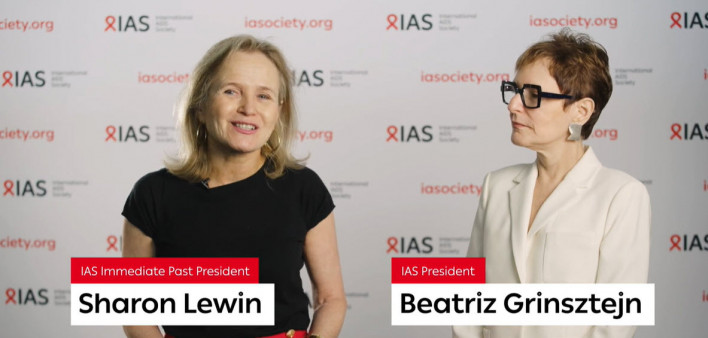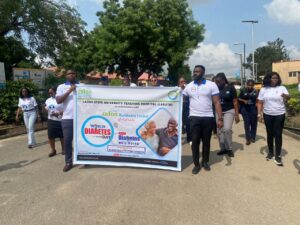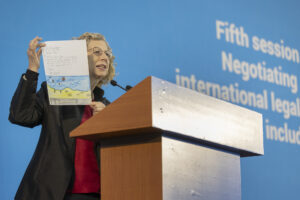
IAS – the International AIDS Society – welcomed Beatriz Grinsztejn from Brazil as IAS President and Kenneth Ngure from Kenya as President-Elect today. The IAS leadership also expressed deep gratitude to Sharon Lewin from Australia who stepped down as IAS President and assumed her role as Immediate Past President.
Grinsztejn, a leading infectious disease physician-researcher, co-founded FIOCRUZ HIV/AIDS Service, the largest care provider in Rio de Janeiro, Brazil, and has served as Director of the HIV/AIDS Clinical Research Unit at the Evandro Chagas National Institute of Infectious Diseases – FIOCRUZ for 25 years.
Addressing delegates at the closing ceremony of AIDS 2024, the 25th International AIDS Conference, Grinsztejn underscored the conference’s theme: Put people first!
“As a lesbian from Latin America and the director of the first sexual and gender minorities’ health clinic in Rio de Janeiro, I witness firsthand every day how we are still failing the most marginalized people. In Brazil, new HIV acquisitions are rising among young black men who have sex with men, illustrating the structural gender-related violence and racism fuelling the epidemic,” Grinsztejn said.
Grinsztejn is also a leader in clinical research for the development of new HIV prevention tools, including an important study to evaluate long-acting injectable cabotegravir in HIV-negative men who have sex with men and trans women (HPTN 083). A pioneering champion of LGBTQIA+ rights, she also led efforts to introduce gender-affirming care in Brazil.
Citing scientific breakthroughs presented at AIDS 2024, she called for equitable rollout of groundbreaking prevention drugs.
“The promise of long-acting injectables highlights the need to ensure access across the global South. For prevention to work, we need to ensure everyone, everywhere has access to the latest technologies.”
She went on to warn of donor fatigue, the rise of authoritarian governments and shrinking civil space. Grinsztejn called for sustained funding and resources for efforts to achieve global HIV targets.
“Crossing the last mile to end AIDS as a public health threat will require more attention and resources. International mechanisms such as PEPFAR and the Global Fund are under pressure. Now is not the time to question the value of these vital organizations.”
The IAS also announced newly elected members of its Governing Council, which determines strategy and policy direction for the organization to ensure that it fulfils its mission.







